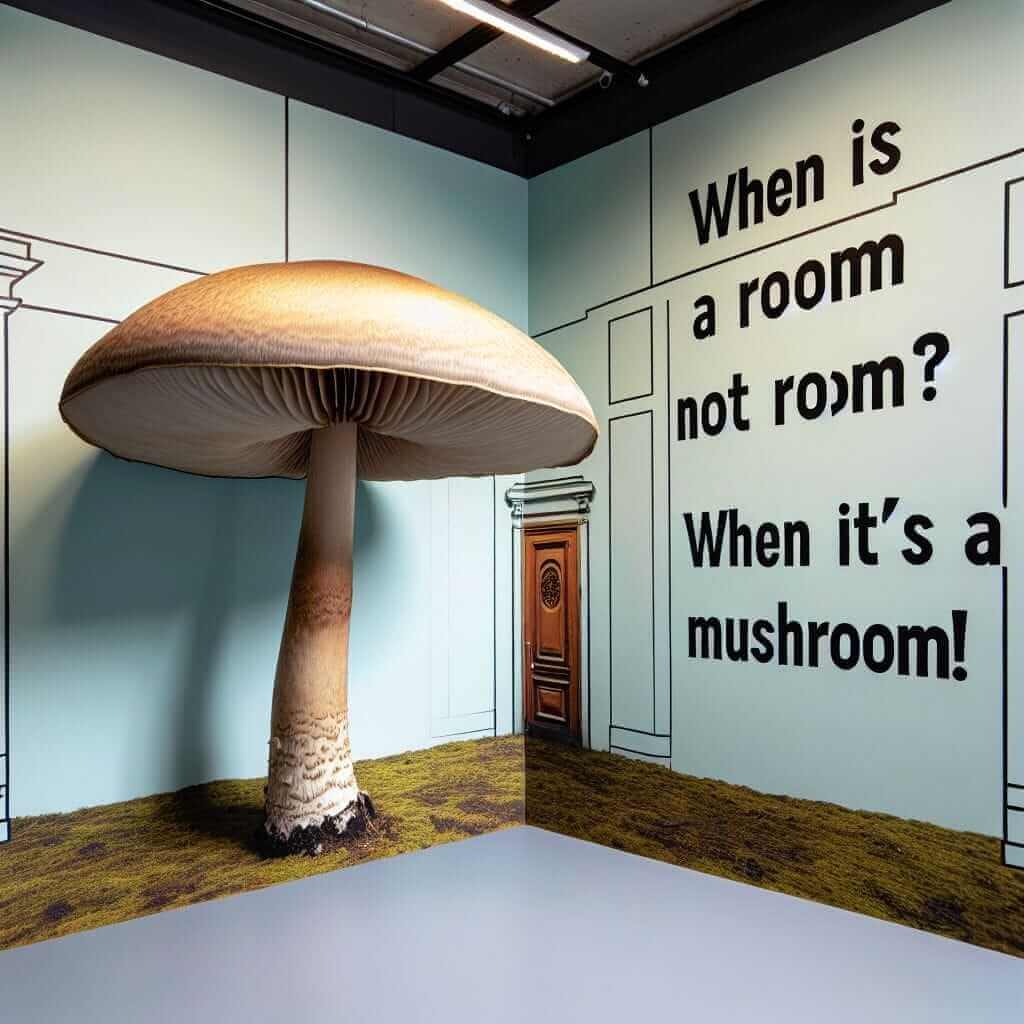As an IELTS instructor with over two decades of experience, I’ve encountered countless questions from students preparing for their speaking exams. One question that frequently pops up, especially among those aiming for a higher band score, is: “How can I think outside the box and deliver less predictable responses?” This is where understanding idiomatic language, like the phrase “when is a room not a room?”, becomes crucial.
Nội dung bài viết
The Meaning Behind the Idiom and its Relevance to IELTS
This playful riddle, often used to introduce children to wordplay, holds a deeper meaning relevant to IELTS Speaking. The answer, of course, is “when it’s a mushroom.”
 When is a room not a room?
When is a room not a room?
Here’s why this is important for your IELTS preparation:
- Lexical Resource: Demonstrating a wide range of vocabulary, including idiomatic expressions, is key to achieving a higher score in IELTS Speaking.
- Fluency and Coherence: Using idioms naturally can make your speech sound more fluent and engaging.
- Grammatical Range and Accuracy: Understanding the structure and context of idioms showcases your grasp of English grammar.
How to Incorporate Idioms Effectively
While knowing a lot of idioms might seem impressive, the key is to use them appropriately and naturally. Here’s how:
- Understand the Meaning: Before using any idiom, ensure you fully understand its meaning and how it fits into the context of your conversation.
- Don’t Overuse: Sprinkling one or two idioms naturally throughout your speaking exam is better than forcing them into every answer.
- Practice Makes Perfect: The more you practice using idioms in everyday conversations and mock speaking tests, the more confident you’ll become in incorporating them during your actual exam.
Example in an IELTS Speaking Context
Let’s imagine the examiner asks you about a time you had to solve a problem creatively. You could say:
“There was a time when my team and I were facing a seemingly impossible deadline. We were completely stumped, like we were stuck in a room with no doors or windows. But then, after a good night’s sleep, it dawned on me! The solution was so simple, it was almost like finding a mushroom in a room full of furniture. We just needed to…”
In this example, the idioms “stumped” and “dawned on me” are used naturally and effectively to describe the speaker’s thought process.
Tips for Success
- Read Widely: Exposure to different forms of English, such as books, articles, and movies, will help you encounter and learn new idioms.
- Keep a Vocabulary Journal: Note down new idioms you come across, their meanings, and examples of how to use them in a sentence.
- Practice with a Partner: Engage in conversations with a study partner or tutor where you consciously try to incorporate idioms.
Conclusion
Mastering idiomatic language, like understanding when a room is not a room, can significantly enhance your IELTS Speaking performance. Remember, it’s not about memorizing a list of idioms but about using them thoughtfully and appropriately to demonstrate your command of the English language. So keep practicing, be confident, and good luck with your IELTS exam!


